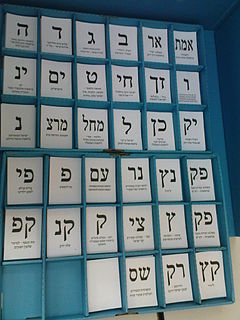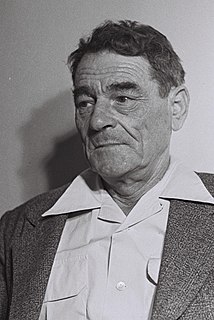
The Prime Minister of Israel is the head of government and chief executive of Israel.
Mapai was a centre-left political party in Israel, and was the dominant force in Israeli politics until its merger into the modern-day Israeli Labor Party in 1968. During Mapai's time in office, a wide range of progressive reforms were carried out, as characterised by the establishment of a welfare state, providing minimum income, security, and free access to housing subsidies and health and social services.

Herut was the major right-wing nationalist political party in Israel from 1948 until its formal merger into Likud in 1988. It was an adherent of Revisionist Zionism, and was initially known in part for its militia actions; it became more moderate from 1951.

The General Zionists were a centre-right Zionist movement and a political party in Israel. The General Zionists supported the leadership of Chaim Weizmann and their views were largely colored by central European culture. Their political arm is an ancestor of the modern-day Likud.
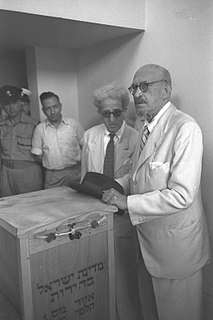
Elections for the second Knesset were held in Israel on 30 July 1951. Voter turnout was 75.1%.
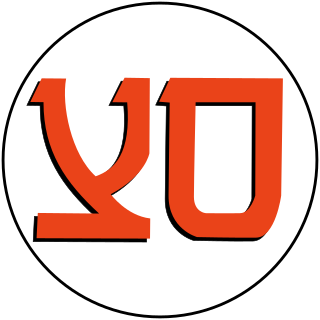
Sephardim and Oriental Communities was a political party in Israel and is one of the ancestors of the Likud party.
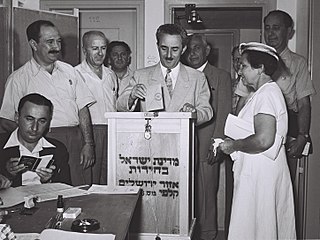
Elections for the third Knesset were held in Israel on 26 July 1955. Voter turnout was 82.8%.
Elections for the fourth Knesset were held in Israel on 3 November 1959. Voter turnout was 81.5%.
The Israeli Liberal Party was a political party in Israel and is one of the ancestors of the modern-day Likud. The party was created by a merger between the centrist Progressive Party and the General Zionists, forming a right-leaning, middle-class-based party. The Progressives soon seceded to form the Independent Liberals in 1964.
Elections for the sixth Knesset were held in Israel on 2 November 1965. Voter turnout was 85.9%.
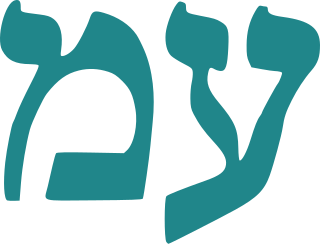
The National List, sometimes translated as the State List, was a political party in Israel. Despite being founded by David Ben-Gurion, one of the fathers of the Israeli left, the party is an ancestor of the modern-day Likud, Israel's largest right-wing bloc.

Pinchas Rosen was an Israeli statesman, and the country's first Minister of Justice, serving three times during 1948–51, 1952–56, and 1956–61. He was also leader of the Independent Liberals during the 1960s.

The Alignment is the name of two political alliances in Israel. Each of these Alignment parties later merged into what is now the Israeli Labor Party.

The tenth government of Israel was formed on 2 November 1961 following the August elections. Although David Ben-Gurion was appointed Prime Minister, the government was actually formed by Minister of Finance, Levi Eshkol. On 7 September Ben-Gurion had told President Yitzhak Ben-Zvi that he was unable to form a government; on 14 September Ben-Zvi asked Eshkol to form a government, with Eshkol subsequently announcing that he would do so with Ben-Gurion as PM. It turned out to be the last government led by Ben-Gurion.

The twelfth government of Israel was formed by Levi Eshkol on 22 December 1964, towards the end of the fifth Knesset.

The thirteenth government of Israel was formed by Levi Eshkol on 12 January 1966, following the November 1965 elections. His coalition included the Alignment, the National Religious Party, Mapam, the Independent Liberals, Poalei Agudat Yisrael, Progress and Development and Cooperation and Brotherhood, and had eighteen ministers.
